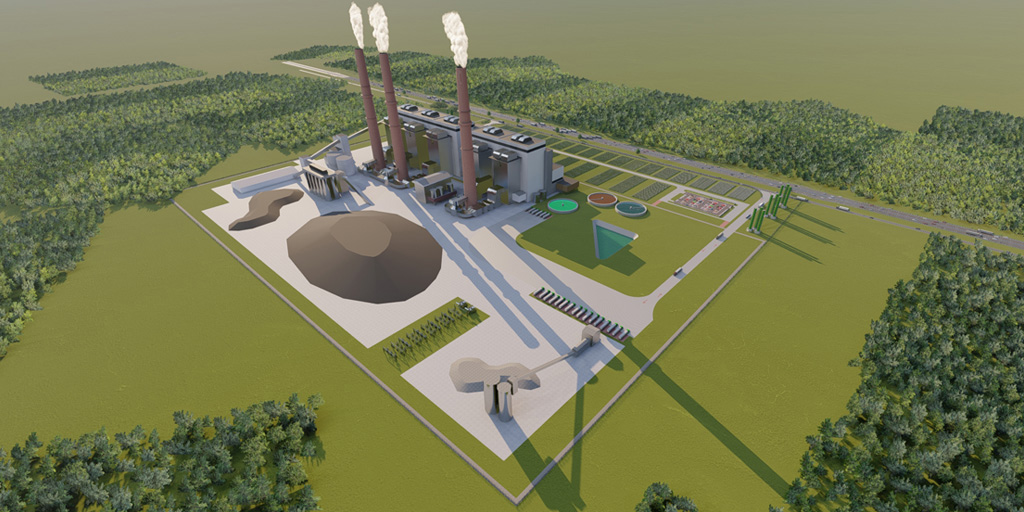
SYNTHETIC FUEL HUB – A BREAKTHROUGH IN SUSTAINABLE ENERGY
The Synthetic Fuel Hub is an innovative solution that integrates the latest technologies for the production, storage, and distribution of synthetic fuels, fully aligned with the principles of sustainable development. Addressing global challenges in decarbonization, our offering focuses on creating energy ecosystems that support industry, transportation, and communities in transitioning to zero-emission energy sources.
What Are Synthetic Fuels?
Synthetic fuels are advanced energy carriers produced through chemical processes using hydrogen (H₂) and carbon dioxide (CO₂) captured from the atmosphere or industrial carbon capture processes. The production process is closed-loop: the amount of CO₂ released during combustion equals the amount captured during production.
Key Types of Synthetic Fuels:
- E-Methanol: Used in maritime transport and the chemical industry.
- E-Diesel: A substitute for fossil fuels in heavy vehicles and machinery.
- E-Kerosene (E-Jet Fuel): Zero-emission fuel for aviation.
Production of Synthetic Fuels
At the core of our technology is the process of combining hydrogen, produced using renewable energy (e.g., through solar- or wind-powered electrolyzers), with captured CO₂. Key components of the system include:
- Green Hydrogen Production: Using electrolyzers that efficiently convert electricity into hydrogen.
- Carbon Capture and Utilization: Employing CCS (Carbon Capture and Storage) and CCU (Carbon Capture and Utilization) technologies to repurpose CO₂ as a raw material for fuel synthesis.
- Chemical Synthesis: Processes like Fischer-Tropsch or methanation that convert hydrogen and CO₂ into liquid or gaseous fuels.
Storage and Distribution
The Synthetic Fuel Hub is integrated with storage and transportation infrastructure to ensure stable and secure large-scale operations:
- Storage Tanks: Designed for storing fuels in liquid or gaseous form.
- Flexible Distribution: Capable of delivering fuels to marine, aviation, road transport, and industrial sectors.
- Logistics Integration: Easily integrated into existing fuel transportation networks.
Applications Across Sectors
Synthetic fuels are widely applicable in key economic sectors:
- Transport: Zero-emission fuels for aviation, shipping, and heavy-duty fleets.
- Industry: Alternatives to natural gas and coal for high-temperature industrial processes.
- Energy: Powering backup generators and serving as a medium for renewable energy storage.
Benefits of Synthetic Fuels:
Sustainability
- CO₂ Reduction: A closed carbon cycle in production and use.
- Renewable Energy Utilization: Leveraging surplus renewable energy for fuel production enhances energy system stability.
Versatility
- Compatibility: Usable in existing engines and systems without modification.
- Local Adaptability: Production near renewable energy sources tailored to regional needs.
Energy Stability and Independence
- Reduced Dependency: Less reliance on imported fossil fuels.
- Economic Development: Local hubs support renewable energy-driven economies.
Ecological Advantages of the Synthetic Fuel Hub
- Lower Carbon Footprint: Significantly reduces greenhouse gas emissions in production and use.
- Waste Elimination: Utilizes organic and industrial waste as a CO₂ source.
- Support for Circular Economy: The closed life cycle of synthetic fuels aligns with circular economy principles.
The Synthetic Fuel Hub as the Future of Energy
Our hubs provide comprehensive solutions combining the production, storage, and distribution of synthetic fuels, enabling a smooth transition to sustainable energy systems. Contact us to explore how we can assist in establishing a Synthetic Fuel Hub that helps achieve climate goals and strengthens your energy independence.







